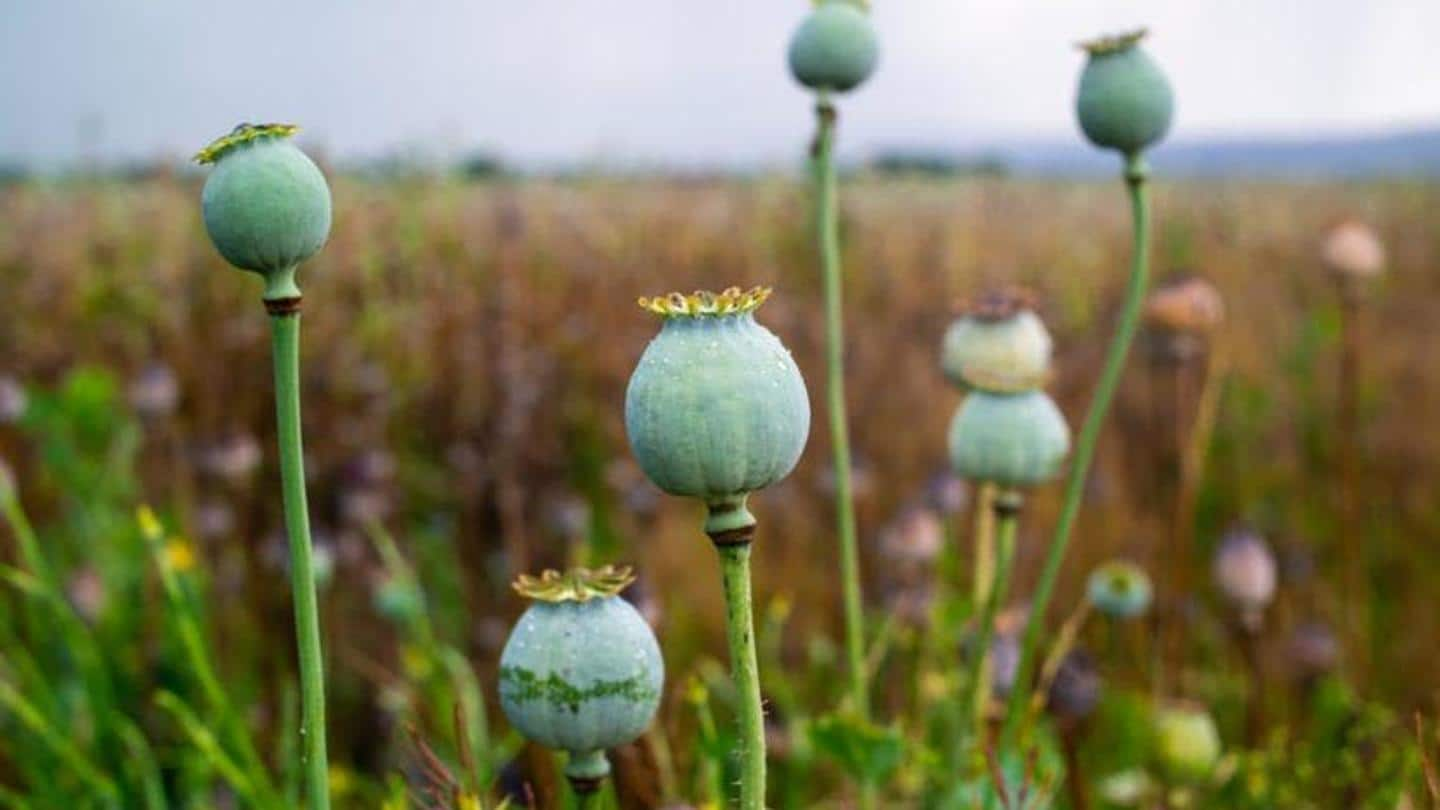
#NewsBytesExplainer: Why did India open opium trade to private firms
What's the story
In a significant move, India has let commercial firms into the highly controlled field of opium production and processing. According to reports, Bajaj Healthcare has become the first business firm to obtain tenders for creating concentrated poppy straws. Poppy straw, according to specialists, is a precious ingredient in pain relievers and cough syrups. Know more details here.
Background
Opium production in India
Poppies have been grown in India since at least the 15th century. Following the collapse of the Mughal Empire, the British gained a monopoly on its production. The cultivation and trading of opium were handed up to the Indian government after independence. In India, the cultivation and processing of poppy and opium are currently governed by the requirements of the NDPS Act and Rules.
Monitoring
Highly monitored trade due to risk of addiction
The Indian Express claims that because of the possibility of illegal trade and the danger of addiction, opium poppy production is rigorously controlled throughout the nation. Currently, only plots of land in 22 districts in the states of Madhya Pradesh, Uttar Pradesh, and Rajasthan that have been officially registered by the federal government are permitted to be planted with crops.
Licensing
Government reviews licensing requirements every year
In India, the government reviews the licensing requirements for opium cultivation every year for its sensitive nature. "The government uses satellite images to check for illicit cultivation. Once the crop is ready, they have a formula on how much the yield should be," pharmaceutical expert C M Gulhati said. He said the entire quantity the government later processes in its own factories.
Production
Entire opium processed by government-owned factories only
As per reports, the country's opium is being processed exclusively at the Government Opium and Alkaloid Factories in Ghazipur, Uttar Pradesh, and Neemuch, Madhya Pradesh. These factories manufacture Morphine, codeine, thebaine, and oxycodone. However, Gulhati said there was no reason for the government to keep the private players away from the process in presence of a strict monitoring mechanism.
Uses
What are the uses of opium?
Opium is a natural substance obtained from poppy seeds and its derivatives are mainly used for pain management. "The extracts from opium poppy such as morphine are potent painkillers and are mainly prescribed to cancer patients," Gulhati said. The opium product codeine is helpful in cough suppression. The addictive properties of opium is the reason that the cultivation of poppy is highly regulated.
Private industry
Significance of involvement of private players
Experts said the private enterprise can process over 6,000 MT of poppy to manufacture active medicinal components for the next five years. The said private sector's engagement may increase local production of different alkaloids such as morphine and codeine and introduce technology, and minimize imports. Presently India is among a few global producers of poppy but the medicinal components are still imported.